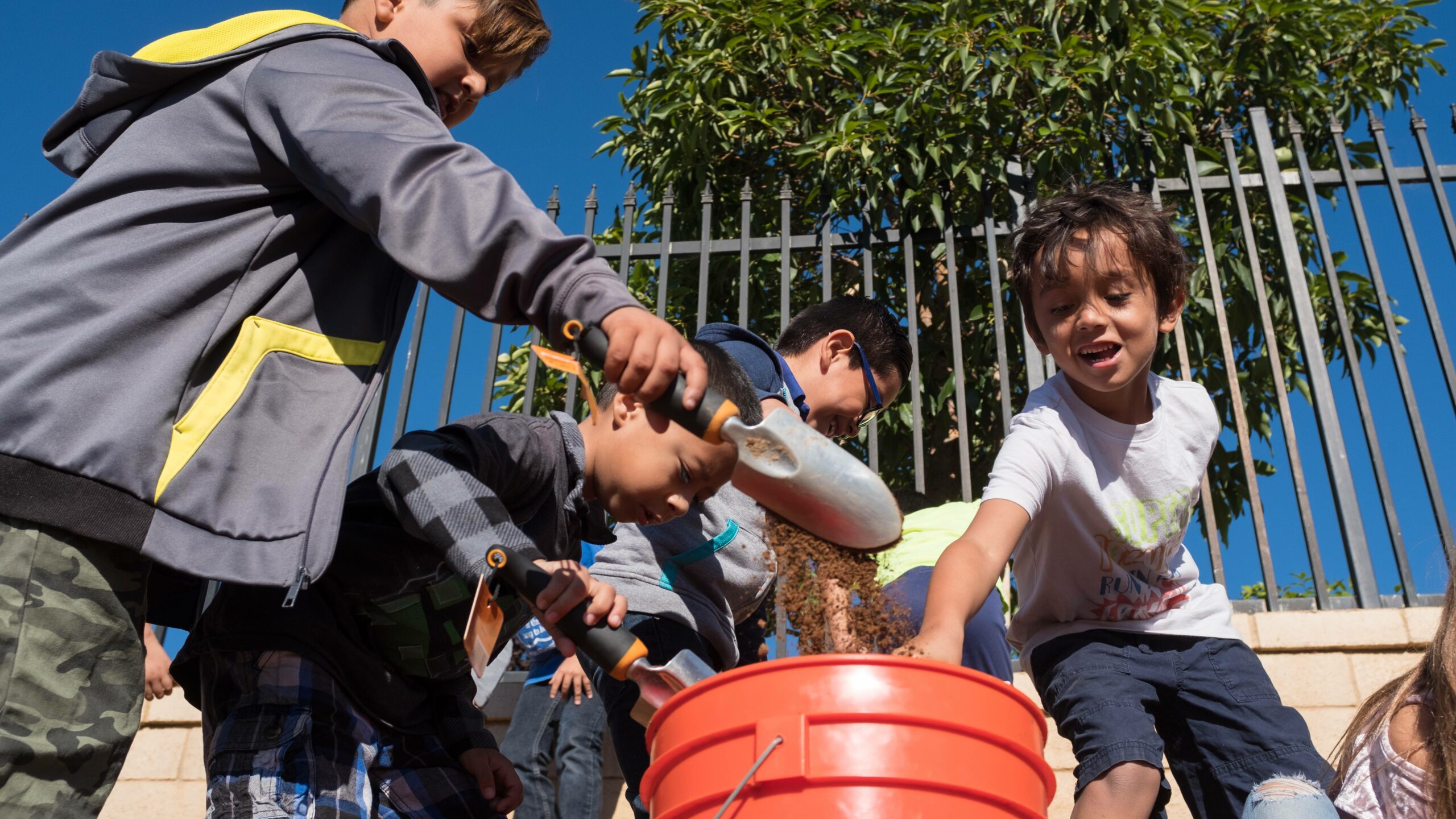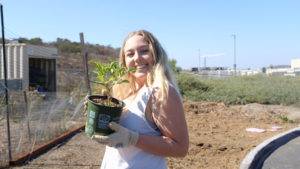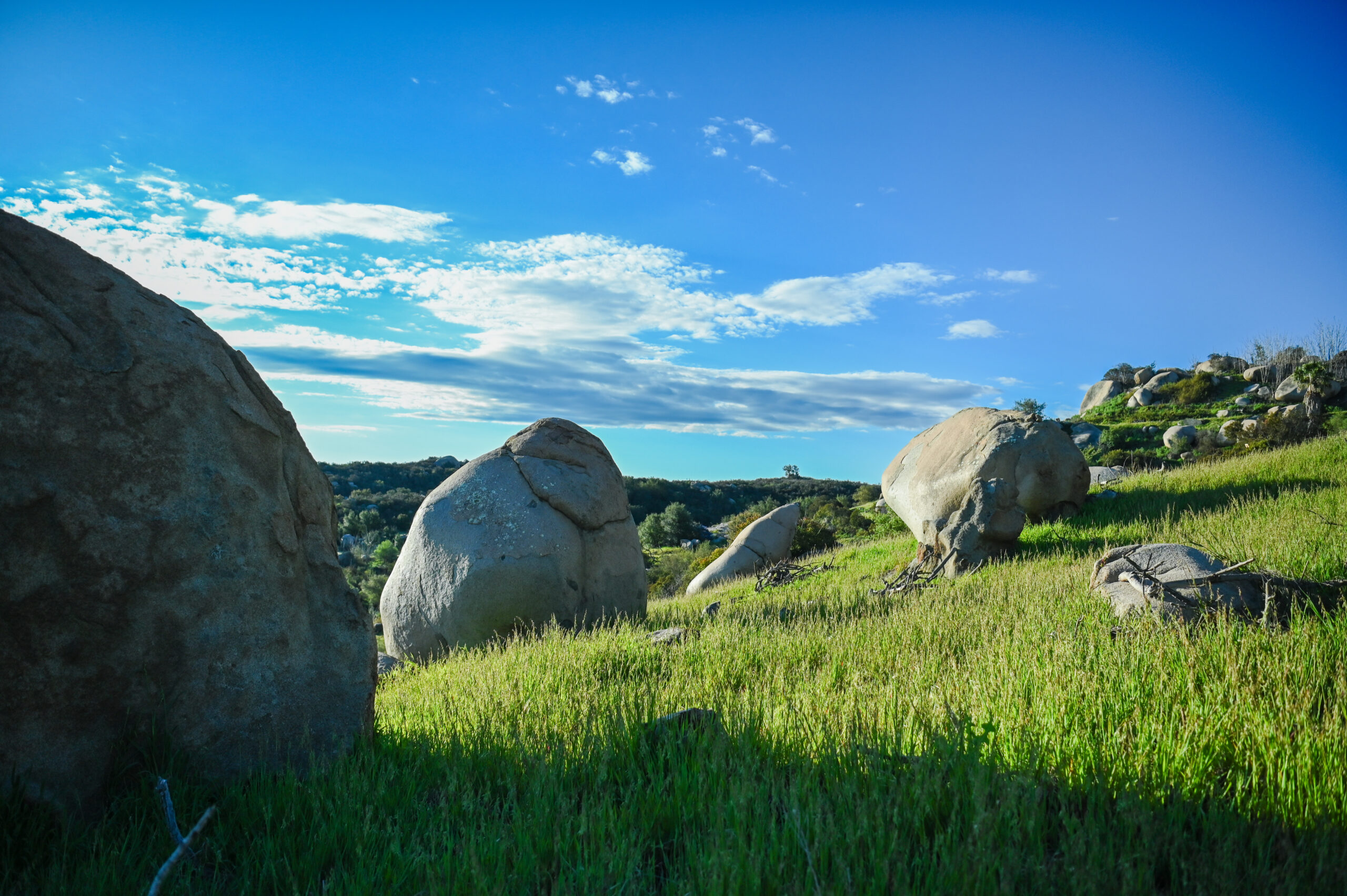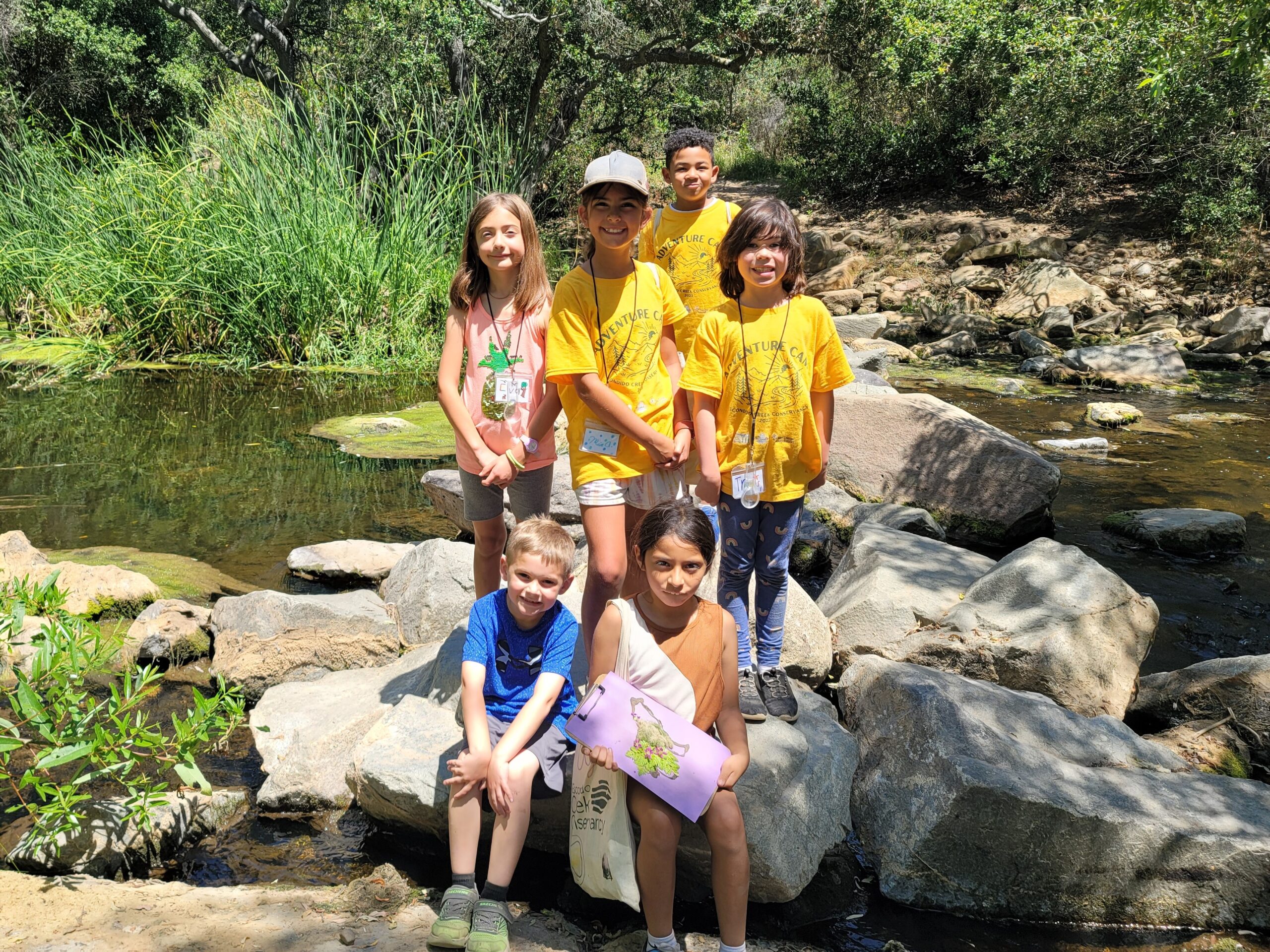
Local Schools Plant Native
Fall planting has begun and our local pollinator communities now have two additional gardens to look forward to this spring! The first of the two gardens was planted at Conway Elementary. Every second and third grader was given a chance to grab a shovel and help prepare the planting area. Who knew kids loved to play in dirt? The students quickly made the project into a friendly competition fueled by Fortnite-inspired team names. Many of the students have already visited Elfin Forest Recreational Reserve to learn the importance of habitats and were thrilled of being able to create a habitat on their very own campus! Many of the students loved the project so much we couldn’t get them away from their trowels. But with the garden right in view of their lunch tables, the students will be able to watch their plants grow throughout the year and observe any pollinators visiting their newly installed habitat.

Environmental Studies Club President, Kaitlyn Fudge, holding a native plant from Moosa Creek Nursery.
The next garden was planted at Cal State San Marcos alongside the sustainable food project–a food garden on campus run by students and faculty. Designed by native plant landscaper, Greg Ruben, these native plants will help bring pollinators to the food garden. The initiative is led by Environmental Studies grad and The Escondido Creek Conservancy’s Nathan Serrato, in cooperation with the Environmental Studies and Garden Club. These projects aim to address a vital issue for San Diego native shrubland habitats–more specifically, native pollinators. “Pollinator gardens and pathways convert low-value landscaping into important connections to sensitive Chaparral habitat. Honeybees get all the attention, but our native bees and other pollinators like moths, hover flies, bats, and beetles need support too,” says Environmental Studies Lecturer, Christina Simokat.
Simokat’s students have already begun collecting data on the two pollinator sites for her Introduction To Ecology course. As the gardens establishing themselves as habitat for pollinators in the coming years, students from the Environmental Studies Department will continue monitoring its progress. A larger garden on the campus is currently in the works and will be completed by next Spring. Check back for more updates!




